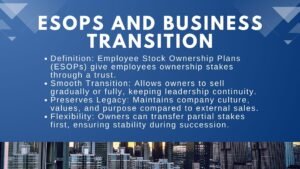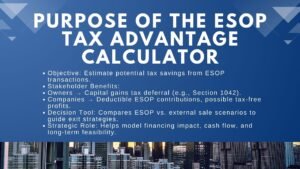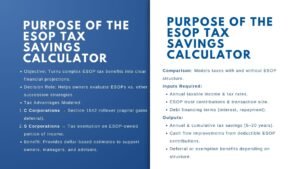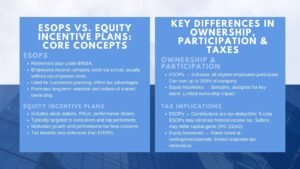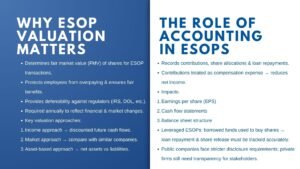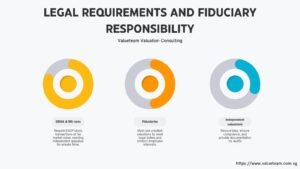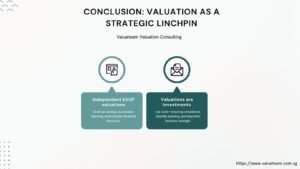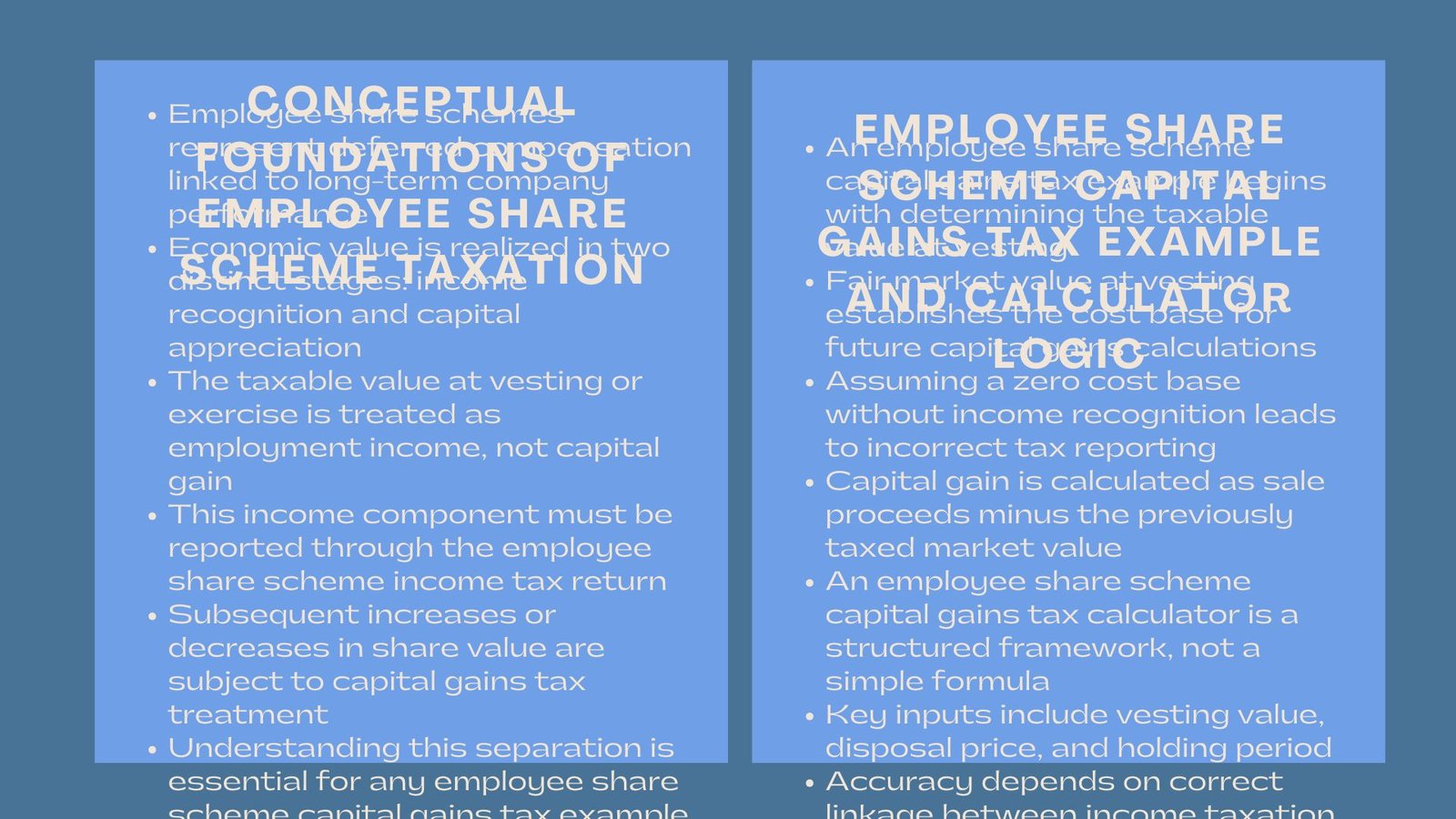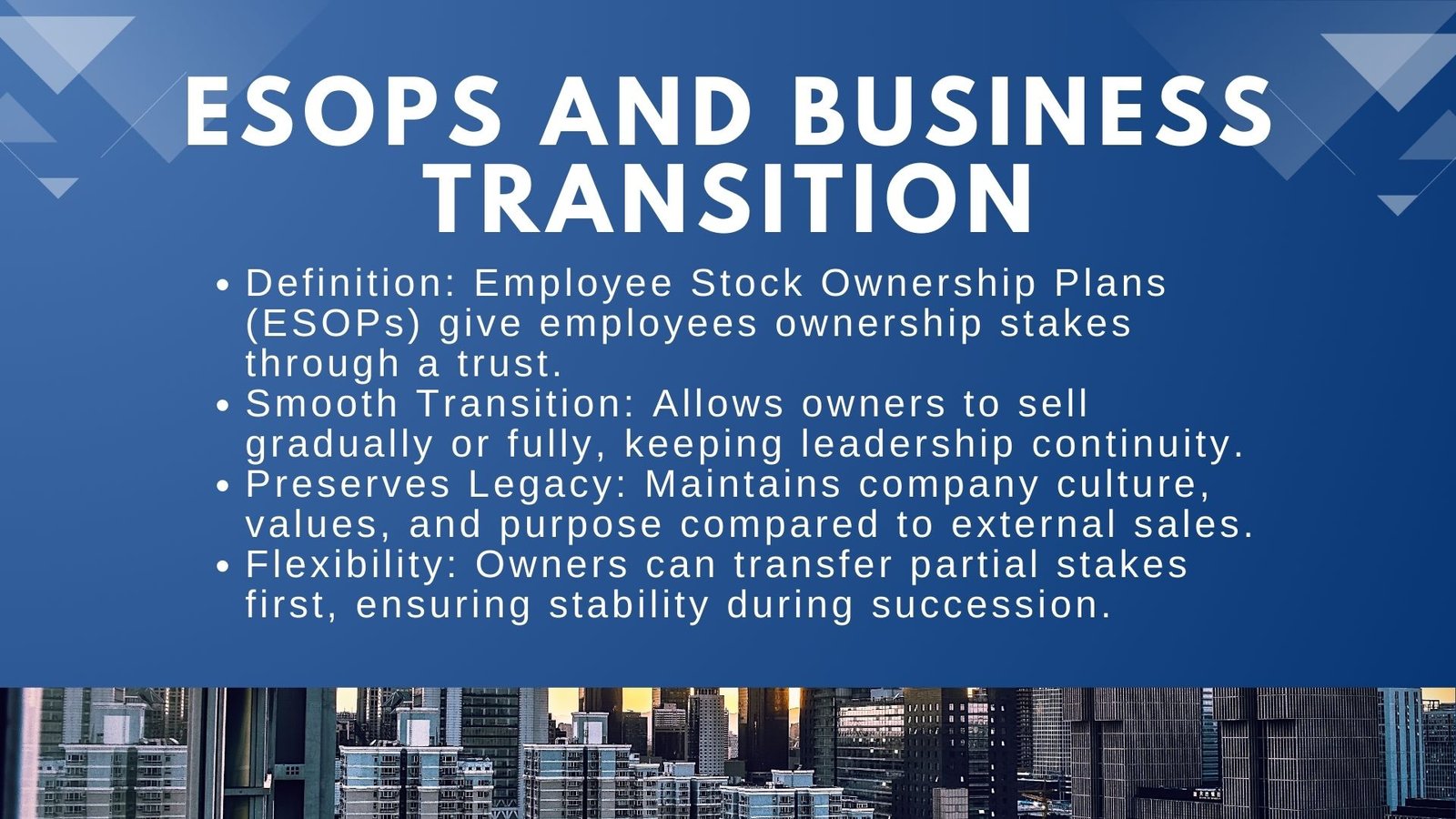
How ESOPs Support Business Transition and Retention
Guide to How ESOPs Support Business Transition and Retention
The ESOP- Employee Stock Ownership Plans- has become a very glamorous concept within the framework of business continuity and employee involvement. In understanding the kind of option available to business owners transitioning into succession, ESOP is a special approach that not only gives them an easy time in transition, but it also enables them to retain and motivate employees. ESOPs ensure that the employees have ownership stake in the company, an aspect which aligns their interest to the interest of the company over the long run. This article develops the argument to explain how ESOPs facilitate business succession, maintain employee retention, and increase the stability of a business.
The Role of ESOPs in Business Transition
Business transition is among the most critical stages to an owner, especially when they are aimed at saving the culture and legacy of a firm. The ESOPs have given a well-organized means by which the owners can sell portions of their companies or its entirety to the employees via a trust, often relying on ESOP valuation services Singapore professional to ensure accurate and compliant transactions. In this structure, the ownership can either be transferred gradually, or instantly depending on the shifting of business and financial goals, highlighting the importance of ESOP valuation in Singapore.
Contrary to selling a company to an external buyer or a private equity fund which can end up in modifications of management or the overall purpose of the organization, under an ESOP the ownership rests in the hands of the individuals already loyal to the organization and its purpose. The transition period is usually well maintained by the existing leadership team that provides some continuity and stability by solving immediate problems. It may be most useful in family owned enterprises in which brand image and retention of the workers is of critical importance, emphasizing the need for ESOP accounting and valuation Singapore.
This is why many organizations seek clarity on what is employee stock option plan Singapore benefits for business to ensure long-term sustainability. Also, ESOP transactions can be made flexible. Owners have an option of realizing a minority part of the business and progressively transferring ownership to the workers on a long-term basis. This phased strategy will be useful in keeping the operations under control during the crossover process and it will also enable workers to slide into their new status of becoming stakeholders.
Preserving Company Culture and Values
Preservation and cultivation of the culture that exists in the firm are of great benefit as one of the business transition advantages of using ESOP. An incentive is created to preserve the values, work ethic and traditions that have enhanced the success of the company when it becomes owned by people who work in it. Organisations that employees have been involved in are very emotional and they are vested in ensuring such organisations remain in the form in which it is.
Cultural misfit may also occur in the case of selling to an external buyer that may involve, among others, introducing new management teams or making major changes in operations. As compared, ESOPs retain that process of decision making under the original group of stakeholders. This does not only create an easier process of integration into the new ownership responsibilities but also affirms the communality of purpose.
When organizations have established a good reputation in the field that becomes as crucial to maintain as profits because all this is built on the roots of its culture. ESOPs allow one to do both so as to establish a base without compromising issues that make the company special.
Enhancing Employee Commitment and Retention
Probably one of the most documented positive effects of ESOPs is their positivity towards employee retention. When employees are made beneficial owners using an ESOP they are directly involved in the health and eventual value of the company. This level of ownership usually has high loyalty, involvement, and motivation. Employees realise that their individual financial prosperity depends on the profitability and long term growth of the company.
The rate of retention in the ESOP companies is usually high as compared to the regular organizations. Partly, this can be attributed to the fact that employees have earned a reward in the form of long-established contributions towards their ESOP accounts amidst their job tenure. It is further as a result of goodwill and trust built by the company by deciding to share ownership as opposed to selling to an external entity. The owner has made employees realize that he has decided to use a transition strategy that will not only serve the interest of the workforce but the company itself.
In addition, an ESOP knows how to generate an ownership mentality, which in turn is likely to result in a more active approach to problem-solving, better productivity, and enhanced job cooperation. When people have a feeling that they actually form a part of the success of the company, they are more willing to remain and contribute to its further growth.
Financial Advantages for Both Owners and Employees
There are also specific financial advantages in ESOPs in order to facilitate business transition and the retention of employees. To owners, the prospect of selling to an ESOP has been made quite attractive with regards to taxes. When it is the case, sale proceeds can present the possibility of tax deferral upon reinvestment in qualified replacement property. This can positively affect the economics of the ESOP as compared to a normal sale.
The ESOP is a company-paid retirement plan to the employees. The share deposited on the account of each participant can appreciate with time giving the participant a big nest egg upon retirement. As compared to the stock purchase plans where the employees have to give their personal investment to purchase the stocks, the ESOPs do not demand the workforce to invest their own money. What this implies is that, even the lowest level employees can form wealth over a period of time, by virtue of their hold in the organization.
The financial improvements are crucial to the reinforcement of retention. Workers are also likely to remain in the enterprise when they realize that financial gains are accruing. Concurrently, the owner is privy to an easier process of transition with a workforce that is motivated and is willing to invest money in the process.
Supporting Long-Term Stability and Growth
The transition of business is a source of uncertainty that may affect business, morale, and customer relations. ESOPs reduce this disruption because it creates the continuity of leadership between before and after the change of ownership, the cultural continuity of the business and employee behavior, and their engagement.
Employees will have the desire to uphold and improve the performance of the company since employees have now become stakeholders. Such collective responsibility may lead to innovation, efficiency and customer-service-excellence. Most businesses sold to ESOPs show an improvement in the financial performance since employees are more committed to the realization of strategic objectives.
Moreover, ESOPs have the capacity of enhancing the competitiveness of a firm in the labor market. The ownership participation can be used to lure in skilled talent that is beyond a mere salary payroll as it becomes part of the recruitment pitch of the business. Shared ownership and the chance to shape the direction of the company is a dynamic differentiating factor of its own.
On governance-related matters, the ESOPs as well promote openness and channels of communication between the management and employee. Sharing information on the progress of the company and the value of its shares on a regular basis means a common language of what constitutes success. Such a synergistic environment is capable of creating durability in the period of uncertainty and swift growth during the span of benignity.
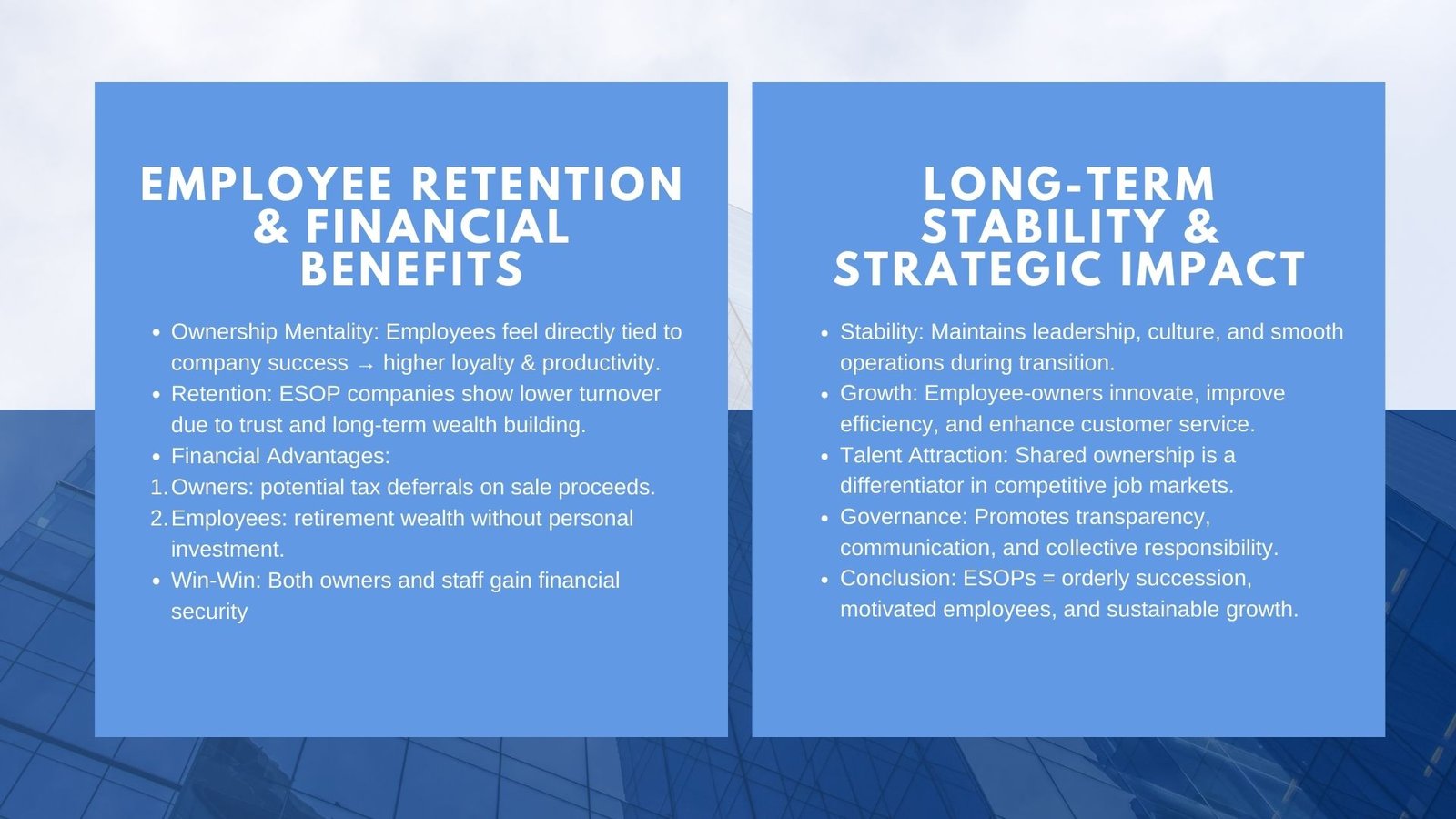
Conclusion: ESOPs as a Strategic Path Forward
ESOPs are an attractive way to exit the business by business owners who do not want to risk their company culture, an unstable company, or the well-being of employees. They offer orderly but adaptable ownership shift mechanism that retains the business in those with the best knowledge of the company, that is, the employees. They also promote loyalty and retention, at the same time by matching the financial incentives with the company performance.
Effective planning, open communication and continuous interaction with the employees as owners determine a long-run success of an ESOP transition. A properly done ESOP can produce what may amount to a win-win situation where the exiting owner sells out successfully, the employees enjoy significant fiscal benefits, and the business will go on and flourish.
In an age when it is more vital than ever before to retain the very best talent and preserve the continuation of business, it is an innovation that arises as a great proposal that ESOPs provide both. They do not only constitute a financial transaction but committal to joint success and sustainable growth.

